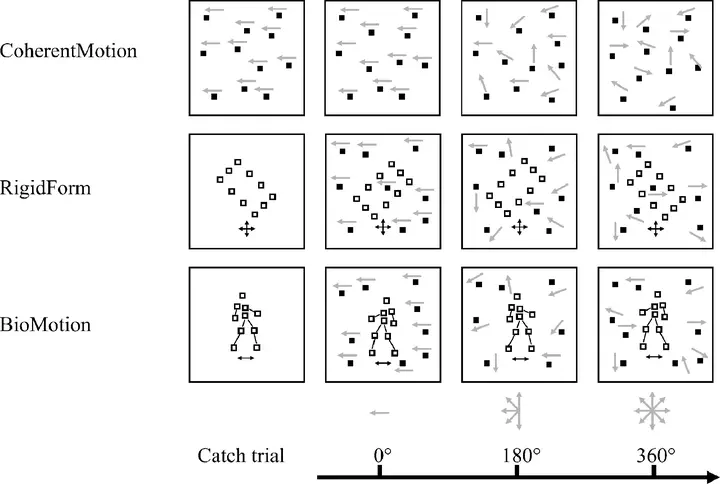Intact perception of coherent motion, dynamic rigid form, and biological motion in chronic schizophrenia
 Image credit: Psychiatry Research
Image credit: Psychiatry Research
Abstract
Background Prior studies have documented biological motion perception deficits in schizophrenia, but it remains unclear whether the impairments arise from poor social cognition, perceptual organization, basic motion processing, or sustained attention/motivation. To address the issue, we had 24 chronic schizophrenia patients and 27 healthy controls perform three tasks: coherent motion, where subjects indicated whether a cloud of dots drifted leftward or rightward; dynamic rigid form, where subjects determined the tilt direction of a translating, point-light rectangle; and biological motion, where subjects judged whether a human point-light figure walked leftward or rightward. Task difficulty was staircase controlled and depended on the directional variability of the background dot motion. Catch trials were added to verify task attentiveness and engagement. Results Patients and controls demonstrated similar performance thresholds and near-ceiling catch trial accuracy for each task (uncorrected ps > 0.1; ds < 0.35). In all but the coherent motion task, higher IQ correlated with better performance (ps < 0.001). Conclusion Schizophrenia patients have intact perception of motion coherence, dynamic rigid form, and biological motion at least for our sample and set-up. We speculate that previously documented biological motion perception deficits arose from task or stimulus differences or from group differences in IQ, attention, or motivation.